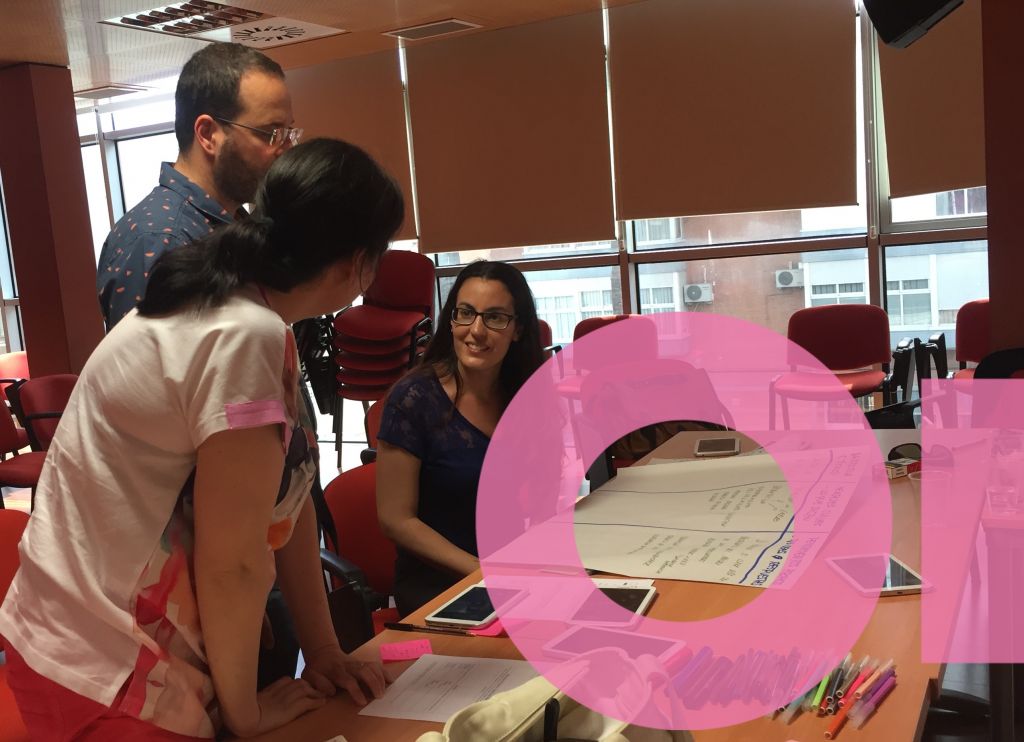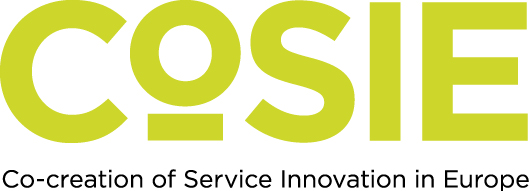The Value of Co-creation and the Point about Training…

Most of us involved in the H2020 CoSIE project have been in education or training of some sort for just about all of our working lives. We learn methods and approaches in order to spread knowledge about what we have learnt and what the established norms and schools of thought are on our given subjects. Under the best of circumstances, we have time to keep up with the latest developments in our field and make our students or trainees aware of different approaches and new perspectives. Up until this point all is well. We’ve done our job to the best of our ability and if people haven’t learnt as much as they could, well, we can’t force them to learn can we? Or can we?
The Universitat Politècnica de València and València city hall are launching a service to improve business skills for the unemployed. To kickstart the co-creation process, we got together a broad mix of stakeholders (including users) to develop ideas for our pilot service and lend their lived experience, knowledge and perspectives to design the programme.

The learning curve has been steep. Here is a brief list of the important lessons we have learnt from our co-creation sessions.Co-creation isn’t for everyone. High-ranking managers often have a very limited idea of what co-creation is and in some instances, they think it involves them telling people what to do and others nodding in meek compliance. Fortunately this isn’t the case.
1. Co-creation means everyone needs to have a voice. Others don’t have to agree with what’s being said, but it does need to be heard, understood and incorporated into the discussion. It is important to involve upper echelon managers of both public administrations and other public and private institutions in the discussion, particularly if we believe what we are doing deserves a shot at systemic change. However, the point at which this discussion takes place needs to be planned for maximum impact, perhaps through conversations of change events.
2. People need time and space to voice their opinions and stories. At a co-creation session, it is evident that people are expected to contribute ideas and participate actively in discussion, but not everyone will be used to environments of this kind and some will not feel confident enough to voice their concerns from the start of the process. Here facilitation is the key, precisely as it is understood by one of our partners in CoSIE, People’s Voice Media. Careful preparation of the event is key to ensuring that the intervention of organisers is limited to guaranteeing that everyone’s voice is heard and everyone feels comfortable enough to engage to some extent. It can only take place in an atmosphere of trust and equality, and therein lies the secret of facilitation.
3. AND MOST IMPORTANTLY… however much we want to adopt co-creation as a tool for designing user-centred services or products (bearing in mind that the origins of co-creation are rooted in the private sector and particularly from the area of marketing and Service-Dominant Logic (Vargo and Lusch, 2004, 2008; Grönroos, 2006), we all have our own pre-conceived ideas about an end product. If we, as facilitators, shape the discussion in accordance with our own preconceptions, the inherent value of co-creation is lost.
Our co-creation sessions were a perfect point in case. We simply gave them a blank sheet of paper and asked them in small groups to draw or symbolise how they saw a business-related service for the unemployed. Once they had done this, and before receiving feedback, we asked them to look at a list of typical elements in a business training course to consider things they might have forgotten and which should be included in the training.
At this point someone held up their hand and said, “But we don’t want any of this. This is the same old stuff that gets churned out on every business course. People end up learning nothing from this”. And so, by giving people a blank page to create on, all our preconceived ideas came tumbling down around our ears. What they don’t need is someone standing at the front of a classroom giving them theories about abstract ideas that they will forget within a few days, or perhaps in a few hours.
Most people learn, or learn best, by doing. And if they learn by doing because they need to do something that will affect their personal or professional lives, then the lesson might stay with them forever. Expert facilitation and accompaniment is vital, but only when it really matters to the user, and we will be applying this maxim to the letter in CoSIE. We still don’t know what the result will be, but we are going to listen first, act in accordance, and then see if we can convince others to follow suit.
Writer:
Michael Willoughby, Universitat Politècnica de València
References
Grönroos, C. (2006) Adopting a service logic for marketing Marketing Theory Vol 6, 3, pp. 317 – 333
Lusch R. F. and Vargo S. L. Service-dominant logic: reactions, reflections and refinements Marketing Theory Vol 6, Issue 3, pp. 281 – 288
Vargo, S. L. and Lusch R. F. (2004) Evolving to a New Dominant Logic for Marketing. Journal of Marketing: January 2004, Vol. 68, No. 1, pp. 1-17
